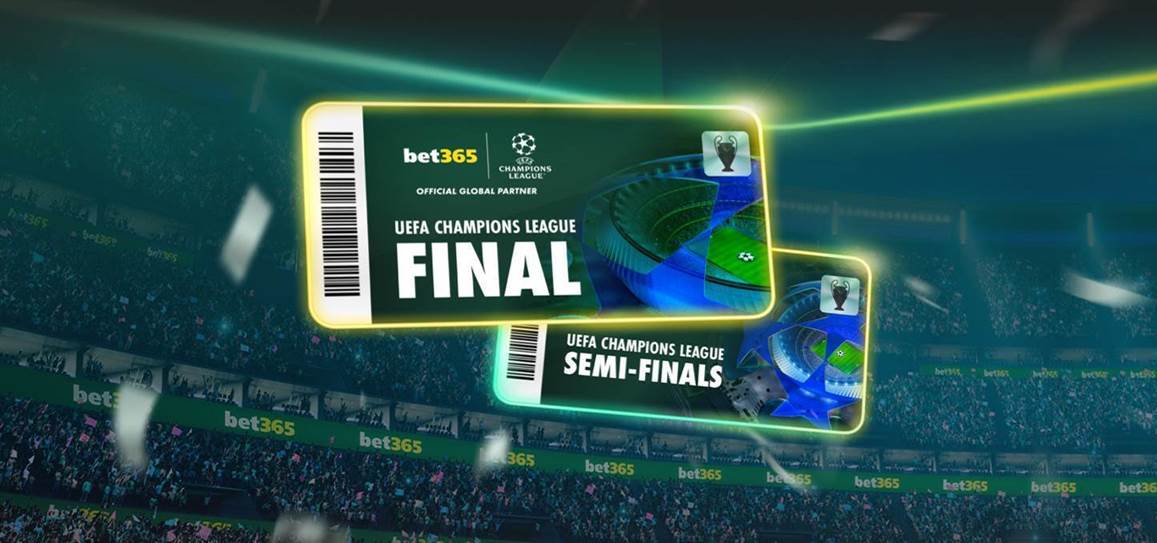The 2023 World Series of Poker Main Event (WSOP Main Event) is the biggest tournament in the event’s history.
With a record-breaking 10,043 players competing, the 2023 WSOP Main event has a prize pool of $93,399,900.
That means that players will be paid that finish in the top 1,507th positions in the tournament.
And the winner? Well, they will take home a record-breaking $12,100,000.
That eclipses the previous record set in 2006 when Jamie Gold took home a cool $12m.
Sports Welcome Offer:
Bet £10 Get £30 in Free Bets
Min Deposit: £5 – Expiry: 30 days – Min Odds: 1/5 (1.20) – Bet365 Review
New Customers only. Bet £10 and get £30 in Free Bets when you join bet365. Sign up, deposit between £5 and £10 to your account and bet365 will give you five times that value in Free Bets when you place qualifying bets to the same value settle. Free Bets are paid as Bet Credits. Min odds/bet and payment method exclusions apply. Returns exclude Bet Credits stake. T&Cs, time limits & exclusions apply. Registration Required.
Let’s now check out how each of the days have progressed in the Main Event so far.
Day 1A
- Date – Thursday 6th July
- Starting Entrants – 1,040
- Remaining Players at End of Day – 720
- Famous Names Competing on Day 1A – Jamie Gold, Jean Robert Bellande, Colby Covington, Tony Dunst, Barny Boatman, Jaime Kaplan, David Peters, Jason Vogel, Martin Debruhl, Doug Polk
Chip Leaders for Day 1A
- Yehuda Dayan – 389,900
- Shota Nakanishi – 360,100
- Hai-Chi Ho – 297,400
- Doug Polk – 281,900
- Neville Endo Costa – 275,000
- Samuel Gagnon – 271,000
- Todd Collins – 250,400
- Rick Mechammil – 247,600
- Christine Do – 236,900
- Anirban Das – 236,900
Day 1B
- Date – Thursday 6th July
- Starting Entrants – 1118
- Remaining Players at End of Day – 819
- Famous Names Competing on Day 1B – Patrik Antonius, Johnny Chan, Isaac Haxton, Scott Seiver, Jason Koon, Humberto Brenes,
Chip Leaders for Day 1B
- Jeanpierre Vanderspuy – 287,000
- Julien Martini – 286,000
- Yuze Ding – 284,500
- Gar Yucheng – 281,500
- Andrew Graham – 277,700
- Scott Numoto – 268,200
- Patrik Antonius – 263,500
- Jevon Lam – 243,000
- Robert Lofaso – 233,500
- Anatoly Filatov – 231,000
- X
Day 1C
- Date – Thursday 6th July
- Starting Entrants – 3080
- Remaining Players at End of Day – 2326
- Famous Names Competing on Day 1C – Jason Ungar, Phil Laak, Stephen Chidwick, Mike Matusow, Alex Foxen, Christoph Vogelsang, Todd Brunson, Andy Bloch, Justin Bonomo, Andrew Lichtenberger, Espen Jorstadt, Jeremy Ausmus, Daniel Negreanu, Matt Berkey
Chip Leaders for Day 1C
- Christopher Brammer – 386,100
- Michael Banducci – 292,600
- Lawrence Chang – 280,900
- Roman Valerstein – 273,300
- Michael Pinto – 266,600
- Daniel Kirsch – 252,800
- DID NOT REPORT 11 – 248,100
- Adrian Buckley – 245,000
- Patrick Beuter – 244,200
- Keith Cummins – 244,000
Day 1D
- Date – Friday 7th July
- Starting Entrants – 4481
- Remaining Players at End of Day – 3202
- Famous Names Competing on Day 1D – Johnny Chan, Chris Moneymaker, Greg Merson, Koray Aldemir, Phil Ivey, Allen Kessler, Fedor Holz, Chance Kornuth, Todd Peterson, Phil Hellmuth, Viktor Blom, Cary Katz, John Juanda, Scotty Nguyen
Chip Leaders for Day 1D
- Nicholas Rigby – 408,800
- Brittney Stout – 375,500
- Neel Murthy – 323,100
- Chris Hunichen – 321,200
- Carlos Leiva – 318,700
- Brandon Mincher – 317,000
- Jeffrey Well – 308,100
- Matthew Adams – 307,200
- Vincent Pistorino – 306,000
- Harish Ananthapadmaabha – 305,400
End of Days 1A, 1B, 1C, 1D Combined Chip Leaders
- Nicholas Rigby – 408,800
- Yehuda Dayan – 389,900
- Christopher Brammer – 386,100
- Brittney Stout – 375,500
- Shota Nakanishi – 360,100
- Neel Murthy – 323,100
- Chris Hunichen – 321,200
- Carlos Leiva – 318,700
- Brandon Mincher – 317,000
- Jeffrey Well – 308,100
Days 2A, 2B, 2C, 2D Combined Chip Leaders
The qualifiers from Day 1 moved into another one of four qualifiers for Day 2. And with registration still open for all four second days, it was expected that Day 2 would beat the record for competitors in the Main Event.
And indeed that was the case with an eventual 10,043 entries smashing the current record.
Days 2A, 2B and 2C were played Thursday, with the larger Day 2D played Friday and here’s the combined scoreboard at the end of these two days of action
- Maurice Hawkins – 941,000
- Nicholas Rigby – 921,500
- Christopher Brammer – 879,000
- Jeffrey Shapiro – 878,000
- Julio Belluscio – 825,500
- Beqir Salihy – 801,000
- John Sofillas – 780,000
- Nick Marchington – 716,000
- Heitor Saraiva – 665,500
- Jacob Mitich – 660,000
After Day 2D had been completed, it was revealed that the prize pool was just shy of $94m and that 1507 places would be paid. 3583 players remained in the tournament as we headed into Day 3.
Day 3
The whittling down of the field continued on Day 3 as we went from 3583 players at the start, to just 1517 remaining at the end of the day.
There were some big movers and fallers too in chip count and the top ten by the end of the day had a very different look.
- Antonio Heredia – 1,899,000
- Chance Kornuth – 1,887,000
- Liran Betito – 1,775,000
- Pei Li – 1,742,000
- Nicholas Rigby – 1,719,000
- Pavel Dyachenko – 1,706,000
- Michael Duek – 1,678,000
- Nicolas Lee – 1,639,000
- Mason Vieth – 1,602,000
- Michael Monroig – 1,552,000
With just ten eliminations needed to reach the bubble, Day 4 promised some intriguing early action.
Day 4
The early action centred on who would be the “bubble boy” or “bubble girl” to win a seat at the next event by finishing in the final paying places. After two hours, the answer to the question was known.
Three players were eliminated at the same time to stand a chance of the prize. But in the end it was Dane Jeppe Bisgaard who claimed the seat at next year’s event.
After the bubble popped, there was carnage over the course of the rest of the day with over a thousand players exiting the tournament, and just two former winners of this event, Chris Moneymaker and Joe Hachem remaining.
In total, 441 players remained in the tournament heading into Day 5.
- Ryan Tosoc – 5,120,000
- Michell Halverson – 5,100,000
- Aditya Systia – 5,075,000
- Scott Berko – 4,700,000
- Bradley Moscowitz – 4,145,000
- Juan Maceiras Lapido – 3,985,000
- Jon Cohen – 3,815,000
- Gabi Livshitz – 3,800,000
- John Racener – 3,710,000
- Quan Zhou – 3,705,000
Day 5
Day 5 saw the field further cut down from 441 to 149 by the end of play. Heading into Day 6, we now have a new chip leader.
Zachary Hall leads by over 4 million chips, putting himself in a fantastic position at the head of the field.
British hopes are resting on Andrew Hulme. He lies fourth with just over 11 million chips, while Jack O’Neill is not too far back in 11th with 7,735,000 chips.
Both former winners of this event Chris Moneymaker and Joe Hachem were eliminated. Meaning a new name will be on this years trophy.
Day 6 starts later today and it should be a cracker!
- Zachary Hall – 16,310,000
- Bryan Obregon – 12,295,000
- Liran Betito – 11,140,000
- Andrew Hulme – 11,065,000
- Joshua Payne – 9,850,000
- Anirban Das – 9,230,000
- Tony Dunst – 8,285,000
- Glenn Fishbein – 8,265,000
- Alejandro Perez – 8,075,000
- Jonathan Therme – 7,900,000
Fancy yourself as a potential WSOP star?
Do you fancy your chances of being a WSOP star of the future or just want to learn how to play the game, then bet365 Poker is a great place to start your journey.
The site offers a wide range of games to enjoy, including tournaments, cash games, six-max tables, Twister Poker and more besides.
Remember to use the bet365 bonus code when you sign up to enjoy the benefits for new customers.
And maybe one day, you’ll be good enough to play in a future WSOP Main Event!


